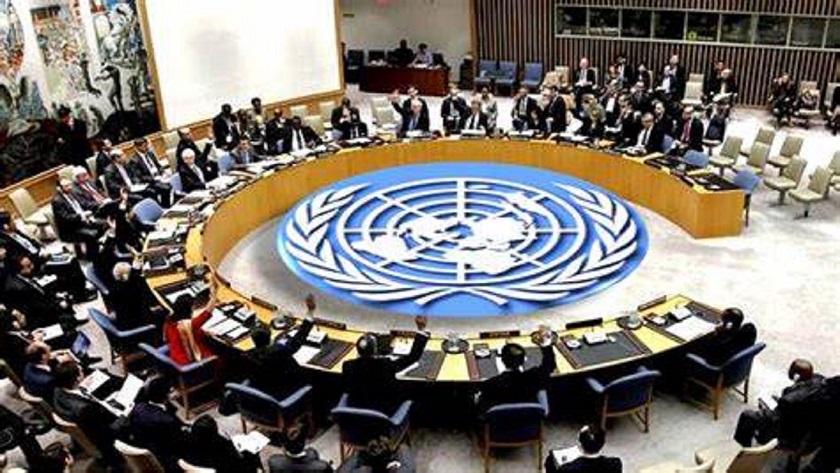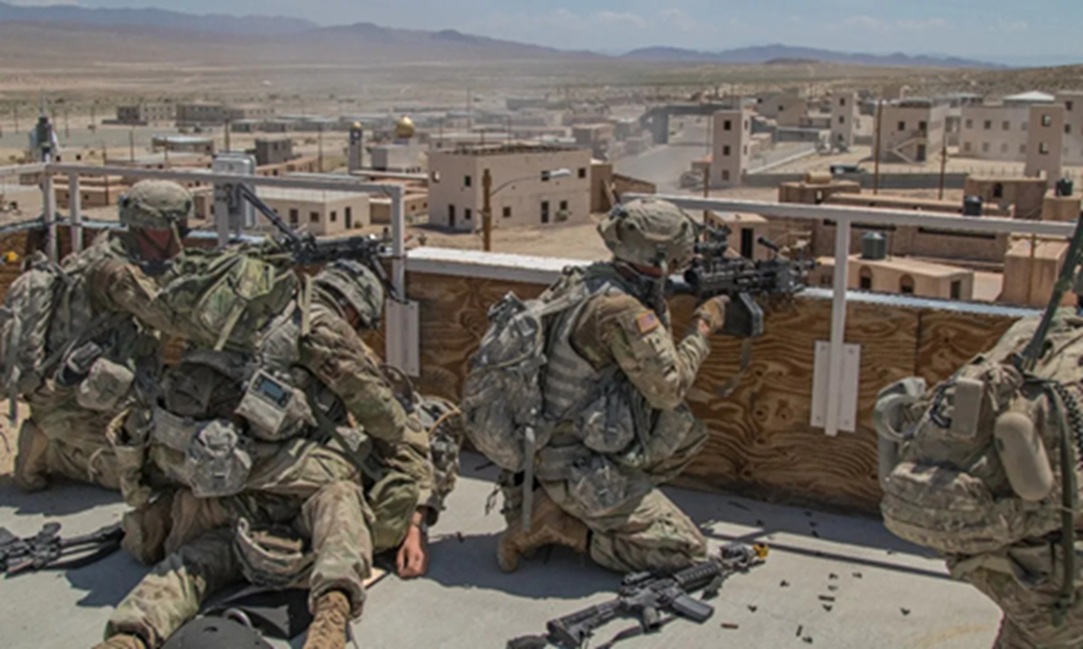In part 1 and part 2 of this article, we focused on the following sections:-
- UN Organisation history
- UNSC mandate, functioning, Veto Power
- Criticism of Veto Power
- Counter Opinion against criticism of UNSC
- Suggested Reforms
The Part-3 of the article would deal with the following Sections:-
- Prospects for Reforms
- Impacts and actions required – Specific to India
- Conclusion and Recommendations
Prospects for Reforms10
Council for Foreign Relations Report (CFR 2020) has brought out that “Substantial Reforms” would be a remote possibility because amending the UN Charter requires an affirmative vote and domestic ratification by two-thirds of UN member states. This would include all of the Security Council’s permanent members, who would not favour measures that would curb their own influence. While there has been broad agreement among UN members that the Security Council’s makeup is outdated, each of the various proposals for reform had inevitably left some aspirants alienated. Some proposals had called for additional permanent members and others for a new class of elected seats that have the possibility of renewal. In the absence of charter reform, smaller states have advocated for procedural changes, including greater transparency and closer consultations with troop-contributing countries.
It is opined that it is important for P-5 to be rational and address the aspirations of the majority of the nation by agreeing for the reasonable reforms.
Impacts and Actions Specific to India
Veto Used Against the Interests of India11
Nagpal (Nagpal D2019) has recorded that “After the attack on the Indian Air Force base in Pathankot, which was orchestrated by the JeM founder Masood Azhar, India, started its effort in the UNSC to designate Masood Azhar as a terrorist. This move has been stalled by China by using its veto power. US, UK, and France also had moved resolutions to declare Masood Azhar as a global terrorist, but their efforts have always been hampered by China as Beijing considers itself an all-weather weather friend” of Pakistan. It has its CPEC project to think of
And therefore, always shields the country and the terrorists that it (Pak) harbours within its borders. China has in total vetoed such a resolution by Indian allies in the UNSC 4 times.
Though after the Pulwama attack, China has condemned the attack, there are some sources that say that China in future too would veto the resolutions which could be tabled in UNSC
Impediments: India’s Pursuit for Permanent Seat in UNSC12
India has been actively pursuing the permanent membership of the UN Security Council (UNSC). It has pushed for text-based negotiations in the UN as a step to move forward the agenda of UNSC reform. However, it is facing several challenges in doing so. Some of them are:-
- Resistance from P-5 countries: As these countries are reluctant to share the exclusive power with new entrants. Although four of the five permanent members support India’s membership, it is not certain that they would accord India same powers as they enjoy.
- Absence of consensus on complex issues: Such as the size of the expansion in the permanent and non-permanent categories, regional distribution, the working methods of the Security Council, its relationship with the UNGA, and veto powers.
- Opposition from other countries: Pakistan along with the Uniting for Consensus (UFC) countries (comprising countries like Pakistan, Italy, Mexico, Egypt etc.) have been leading the opposition to India’s inclusion.
- Global image of India: India is seen as a soft country, and P5 countries often question India’s inability to offer and sanction extreme measures.
- India’s economic contribution: India’s economic contribution to the Security Council budget is very minimal, which again discredits its claim to join the council as a permanent group.
Specific Actions Need to be Taken by India
India’s Need for Containing China13
Tripathi (Tripathy 2020) has rightly pointed out that China has indeed gone astray from the path of peaceful ascendance and has taken recourse to grab lands, maritime channels and air space of many other countries. So the obvious question which would come to any rational mind would be how to deal with China’s mounting expansionist threats. To this end, a few long-lasting institutional measures need to be initiated; like revising the United Nations Charter and the International Law, with a view to repealing China’s permanent membership in the United Nations Security Council (UNSC) and also revoking permanent recognition granted to it by all sovereign states. Since both these actions against China can’t be materialized without revising the UN charter and the International Law, hence there is an utmost necessity for the same.
He goes on to say although it may sound something very difficult because China itself is a permanent member of the UNSC and will obviously veto any motion against it therein. But some special provisions like the earlier Uniting for Peace Resolution initiated by the General Assembly in the wake of the Korean War during 1950-53, may be formulated with collective efforts of the pro-democracy members. Fortunately, this resolution has been invoked many times during crucial exigencies that had emerged afterwards in the world.
Besides these, the obvious immediate solution for the lone superpower and all major powers, including regional and smaller powers in the world, would be to take some concrete and effective steps in such a way so as to form a united and common front against China. This front has to simultaneously work in the following three directions: first, building an all-encompassing global ideological superstructure; and secondly, it must be supported by the latest and lethal weaponry to account for the mammoth military build-up to face any unforeseen eventuality; and lastly, they must collaborate themselves to balance China’s commercial trade-off in their own favour because ongoing trade relations with Beijing continue to be very deep-founded and highly diversified for almost all countries in the world.
Thus, China needs to be forced to give up its bullying practices and will have to respect territorial unity and integrity of all other nations – whether big or small. Nonetheless, if Beijing still persists with its imperialist and undemocratic policies and resorts to war in any way, this front will be left with no option but to take recourse to befitting reply that China deserves. But that may most probably lead to third-world war, resulting in an unimaginable disaster. Of course, this must not happen.
India, therefore, needs to take the lead in building up world consensus against China and achieve the containment aim, through UNSC by diplomatic means.
India’s Representations to UNGA14
India’s permanent represented to UN (Mr Syed Akabruddin) had submitted to the UN body that” Any member of the UN Security Council Sanctions Committee can use the veto to block and kill a proposal for want of unanimity, describing as “complex” and “contentious” the issue of veto which has been repeatedly used by China to block India’s bid to designate Pakistan-based JeM chief Masood Azhar as a global terrorist.
He said in the UNSC Sanctions Committee, any “member can block or object or place on hold, any request of a Member State, thereby in effect killing the proposal on grounds that unanimity is required”.
Akbaruddin said the issue of veto is complex, complicated and contentious, but “then we cannot also allow the veto to have a veto over the process of Council reform itself”.
He finally emphasised the critical need for reforming UNSC for fair treatment for all members. .
Gist of PM Modi’s Address to UNGA15
The PM of India focused on reforming the United Nations Security Council (UNSC) at the 75th UNGA in New York. Prime Minister Narendra Modi addressed the 75th Session of the General Assembly on 26 Sep 2020. He questioned the role of UN in the fight against COVID-19 pandemic and also asked for how long will India be kept out of decision making structures of the global body. ‘India will not hesitate in raising voice against enemies of humanity’ including terrorism, said Mr Modi. In its journey towards progress, India wants to learn from the world as well as share its own experiences with the world, he added. Reform of the United Nations is the need of the hour, said the Prime Minister. “For how long will India be kept out of the decision-making structures of UN,” he asked. In a very strong message to the world, PM Modi also presented a potent case for India’s inclusion in UNSC.
Suggestions for Further Actions by India
Keeping in mind various impediments in its path, India needs to present an irrefutable Case for its Permanent Membership of India in UNSC. Following points have been suggested by Drishti for leveraging its case:-
India’s Historic Association with the UN System
- India has been the founding member of the UN. Also, since its independence and even before that, India has been an active participant in all initiatives undertaken by the UN like Millennium Development Goals, Sustainable development goals and various UN summits, including on climate change.
- In the past, India’s was offered to join the UNSC by both the superpowers, the US and the then Soviet Union in 1950 and in 1955 respectively, However, India denied the offer due to Cold war politics in that era.
- India, till now has been elected for seven terms for a two-year non-permanent member seat, the last being 2011-12, and elected for the 8th terms ( 2021-23).
- Today, most significantly, India has almost twice the number of peacekeepers deployed on the ground as much as by P5 countries.
India’s Intrinsic Value
- India being the largest democracy and second-most populous country (soon to become most populous) in the world, are the primary reasons for India to be granted permanent membership in UNSC.
- Also, India is now the 5th largest economy and one of the fastest-growing economies of the world.
- India’s acquired status of a Nuclear Weapons State (NWS) in May 1998 also makes India a natural claimant as a permanent member similar to the existing permanent members who are all Nuclear Weapon States.
- India’s international profile and capabilities rise due to its ever-expanding global footprint in diverse areas like politics, sustainable development, economics, and culture and science and technology.
- This can be seen in proactive initiative pertaining to maritime and space diplomacy.
- Also, India has been inducted in various export control regimes like MTCR, Wassenaar arrangement, etc.
- Based on these credentials, India’s claim for permanent membership is supported by G4 countries, majority of the permanent members of UNSC and the majority of countries in the United Nations General Assembly.
Representing the Developing World
- India is the undisputed leader of the Third world countries, as reflected by its leadership role in the Non-Aligned Movement and G-77 grouping.
- Therefore, India’s inclusion in UNSC will strengthen India’s stature as a ‘moralistic force’ for the developing states and help in making UNSC more democratic.
The above would make a strong case for India’s inclusion in UNSC as a permanent member.
Intended Benefit
Brief details of the probable benefits accruable to India, due to its inclusion in UNSC, have been elucidated below:-
- Permanent seat in the UNSC would provide India with the much-needed leverage to expand its geo-political and geo-economic clout globally.
- Inclusion of India into UNSC will help in transforming its status from being a responsible stakeholder’ (following international norms) along with becoming a global rule-maker.
- Indian presence at the Security Council would ensure Indian interests are not sacrificed at the altar of great power politics.
- It would serve as an equalizer to China, its rival and an emerging hegemony in Asia and an ever-increasing strategic and security concern in its immediate neighbourhood and beyond.
- Most importantly, it will stall any possible intervention by China, a permanent member at the behest of its ally Pakistan.
Conclusion and Recommendation
United Nations has been created for maintaining a peaceful world and UNSC has a big role to play in that. But, UNSC five permanent members through mostly unfair use of their Veto powers have vitiated the atmosphere, thereby forcing other countries to raise a clarion call for sweeping reforms of UNSC.
India needs to present an irrefutable case for its inclusion in UNSC as a permanent member, which would be easier said than done.
Specific Recommendations for India
- Utilising South China Sea dispute as pivot build strong opinion against China in ASEAN and QUAD, and garner support for India’s aspiration for UNSC permanent seat.
- Build its own economic might to make it the power to reckon in the United Nations.
- Improve its Military might to act as a balancing and effective deterrent force in the South-East Asian Region
After Thoughts
A few questions still remain unanswered:-
- What will be the effect of change of Guard in USA/Probable change of guard in the UK, on India’s aspirations?
- What nefarious designs China-Pakistan duo would use to act as a spoilsport?
Title image courtesy: https://www.indiatvnews.com/news
Disclaimer: The views and opinions expressed by the author do not necessarily reflect the views of the Government of India and Defence Research and Studies.
References:
10. Nagpal Dhirya, 28 Feb 2019, Misuse of Veto Power in the UN Security Council, Self-Published-Youth Ki Awaaz, Retrieved from: https://www.youthkiawaaz.com/2019/02/veto-power-its-mishandling/ accessed on 17 Oct 2020
11. https://onestopupsc.wordpress.com/2019/04/04/discuss-the-impediments-india-is-facing-in-its-pursuit-of-a-permanent-seat-in-un-security-council/ accessed on 16 Oct 2020
12. https://timesofindia.indiatimes.com/blogs/abhiram/containing-chinas-aggressions-amend-international-law-un-charter/ accessed on 18 Oct 2020
13. Business Standard, Press Trust of India, 26 Feb 2019, Veto used by member states to block, kill proposals in UNSC Sanctions Committee: India Retrieved from: https://www.business-standard.com/article/pti-stories/veto-used-by-member-states-to-block-kill-proposals-in-unsc-sanctions-committee-india-119022600427_1.html#:~:text=India%20said%20any%20member%20of,chief%20Masood%20Azhar%20as%20a accessed on 17 Oct 2020
14. FE Online, 26 Sep 2020, Modi speech at UNGA 2020 Highlights: PM pushes for UNSC Reform, greater say in UN’s decision-making structure, Retrieved from: https://www.financialexpress.com/defence/modi-speech-at-unga-2020-live-pm-un-general-assembly-speech-today/2092373/ accessed on 18 Oct 2020
15. Drishti, 02 May 2020, International Relations, Retrieved from https://www.drishtiias.com/daily-updates/daily-news-editorials/india-permanent-seat-in-unsc, Accessed on 18 Oct 2020.





